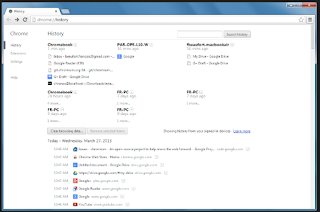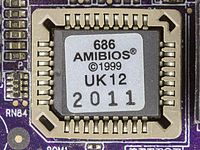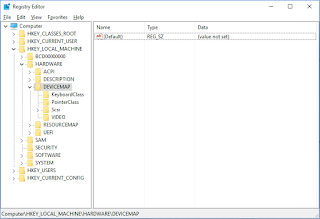Posts
How to set Chrome to not save history.
- Get link
- X
- Other Apps

Dear Readers, Lets learn how to avoid Chrome to save history. ( I have seen many requests regarding this on various forums, hence thought of sharing an Idea to accomplish this. ) Google Chrome has recently become the Default Web browser of choice for many Mac and PC users ( including me ). It’s fast, flexible, smart, user friendly, and relatively secure Etc Etc. But it has an issue / a flaw: unlike most browsers, Chrome has no user setting to prevent or automatically clear the browser history. We can though always manually clear the history, but doing that takes a few clicks through a few menus; not ideal. Luckily, there’s a trick we can use to prevent browsing history from being recorded in Chrome. See below for the trick. Chrome stores the browser history in a file on your computer’s drive. If we limit Chrome’s ability to modify that file, it won’t be able to record any web addresses. To start, first go into Chrome and manually clear your history by pressin...
What is a Virtual machine ( Introduction )
- Get link
- X
- Other Apps

Hello friends, Now that we have gone through Software/Hardware/Firmware now is the time to step ahead! Lets learn about Virtual machines. Before we get into details, lets get to understand what is a Virtual Machine. Again, I am not giving you any text book answer, I will explain in very neutral and layman terms so that the basic is well understood and remembered. The term Virtual means, something which is not physically available. Now, when I say virtual machine, it means a computer that is not physically available. Lets consider a small Office network: 10 users and a server. Total inventory required ( basics for PC office setup ) will be: 01. 11 monitors 02. 10 normal CPU's AND a Server CPU. Now, I plan to install a virtual network, and what I need now is: 01. 11 Monitors. 02.JUST ONE SERVER PC. We are done! The example above was only for a small scale startup with 10 pc setup, just imagine this setup for 100 and 1000 and more PC setups! V...
What is a Firmware? ( Intermediate level )
- Get link
- X
- Other Apps

Hi Friends, Today we will learn about Firmware! ( the lesser known part of a Computer ) We only hear and see more of software and hardware/ But there is another very important part of any computer or an electronic device... This is a Firmware. To make is simple : I would say " Firmware is a combination of hardware and software" Let dig into it, and find more details: There are a lot of devices that contain firmware, to name a few Computer peripherals, Embedded systems, consumer appliances and Computers. A very important point to note for a firmware is that it always resides on Non Volatile memory devices such as Flash memory or a ROM, also, these could never be changed in their lifetime ( major cases ) some manufactures also release updates to the Firmware to fix bugs and some issues if reported major. These updates have to be FLASHED into the firmware. We will go into the flashing in another blog. For now, just remember flashing is the way any firmware is ...
What is Windows Registry? ( Basic level )
- Get link
- X
- Other Apps

Dear friends, Today we will learn about the Windows registry. I would define Registry as a Database ( A database that stores all the low level settings information about the Operating system / Drivers / Hardware / Services and Security in a Computer. ) Lets keep it this simple! Each of the trees under Computer is a key. ( see below image ) The HKEY_LOCAL_MACHINE key has the following subkeys: HARDWARE, SAM, SECURITY, SOFTWARE, and SYSTEM. Each of these keys in turn has subkeys. For example, the HARDWARE key has the subkeys DESCRIPTION, DEVICEMAP, and RESOURCEMAP; the DEVICEMAP key has several subkeys and follows on. Now, lets learn in details about the Hives / keys and Sub keys It is very important that we know, What is the significance and importance of these, that we will learn now. For now just keep it very clear... Registry is a Database ( and ) assume these folders are different tables in a Database. With this clarity in mind, let...
The BOOT Process ( Intermediate level ) Class 4.
- Get link
- X
- Other Apps

Hi Friends, Now, that we are ready : We have gone through Basics of Computer/hardware and software lets now begin the interesting journey. The First STEP ( Once you press the power button ) We will see how the computer starts. After the power button is pressed, it performs 'power on self test' POST. POST checks a computer's internal hardware for compatibility and working status before starting the boot process. If the computer passes the POST, the computer may give a single beep and it starts to continue to boot. However, if the computer fails the POST, the computer will generate a beep code that tells the user the source of the problem. Any errors here can be identified by beep sounds ( as display drivers are not loaded yet and there is no display formed ) However, because of the wide variety of different computer manufacturers with this BIOS, the beep codes may vary. For a DELL motherboard below are the codes. 1 beep - BIOS ROM corruption or failure 2 bee...
Computer Hardware/Software ( Basics ) Class 3.
- Get link
- X
- Other Apps

Hi Friends, Welcome back...In this Blog, We will go through and understand about Hardware and Software ( the two components that everything in a computer can be categorized ) Hardware and Software are both completely different to each other, but are merged into each other.There is also a Firmware in addition to it, that I will discuss in a seperate blog later. The best example to differentiate hardware and Software is below : If we consider Human body as hardware THEN Soul is a software. Though they are so immensely merged together, still the difference is huge! HARDWARE: Hardware is the actual component that our computer is made of. These are the things that we can see and touch such as a monitor, keyboard, CD Drive, CPU etc. Without the hardware a computer would not exist. 1.Physical parts of the computer are called hardware. 2.You can touch, see and feel hardware. 3.Hardware is constructed using physical materials or components. 4.If hardware is damaged, it is replaced ...